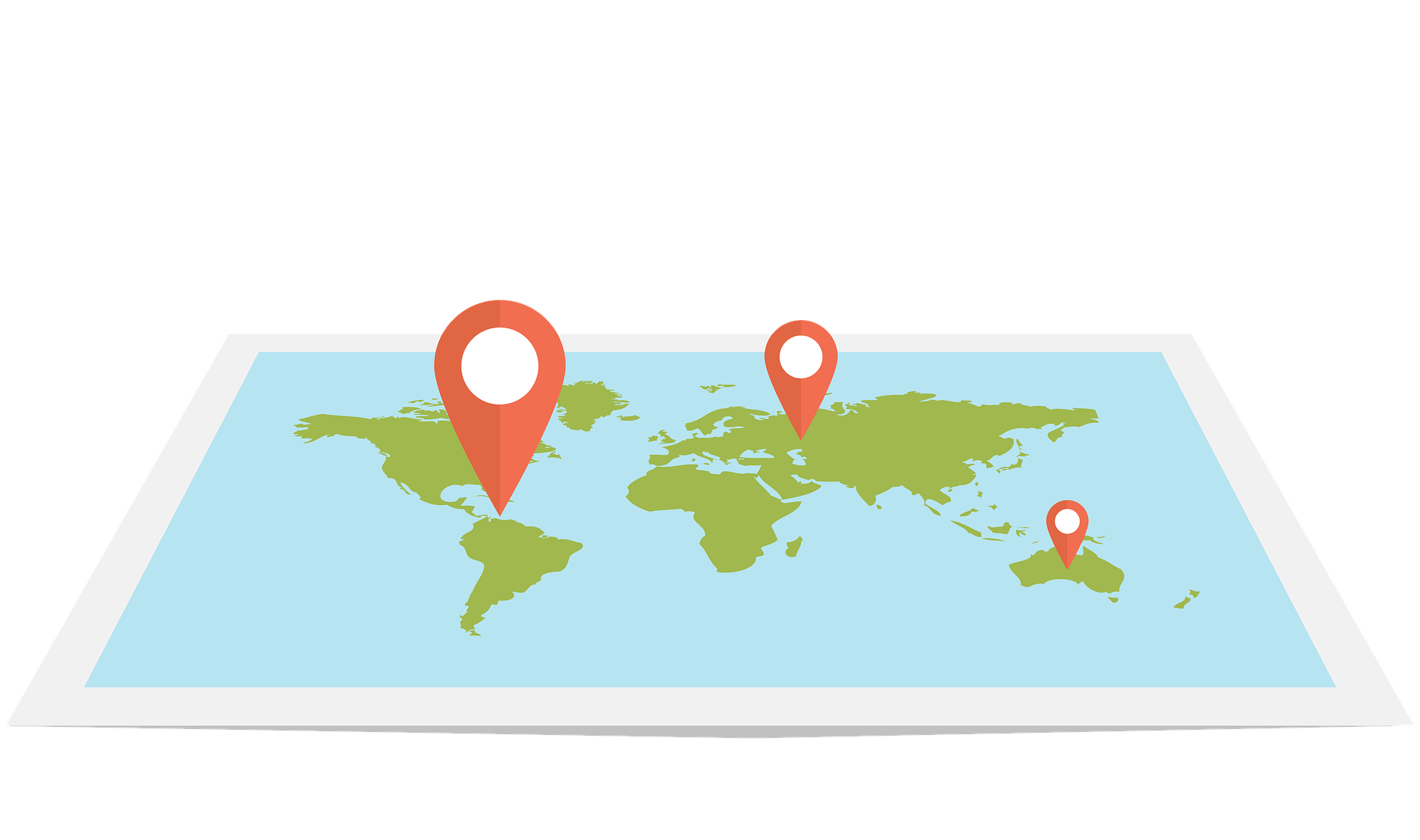The big tech[1] regulation debate has undergone varying degrees of change over time. It started with Microsoft’s legal battles in the 1990s when the United States-Department of Justice (“US-DOJ”) investigated complaints of the company bundling Internet Explorer with its Windows operating system on personal computers and using a pricing strategy that was an entry barrier for competitors.[2] The US-DOJ’s move followed a two-year long investigation by the Federal Trade Commission (“FTC”) on the same grounds, both of which ultimately ended in a settlement.[3]
Today, the subject has become a bipartisan issue in the build-up to the 2020 US presidential elections with both, Republicans and Democrats, arguing for varying degrees of regulation.[4] Across the Atlantic ocean, the EU is stepping up its efforts to address the economic imbalance, misinformation, cybercrimes, data privacy and other harms in society resultant from big-tech’s control over the digital economy[5]. Similarly in India, the fear of the potential harms of the digital economy have triggered a legal and regulatory response in the recent past[6]. The incoming Personal Data Protection Bill 2019 (“PDP Bill”), currently under scrutiny by a Joint Parliamentary Committee (“JPC”), is one of many regulations that will govern the manner in which big tech conducts its business.[7]
As the changing regulatory landscape points to stricter laws and increased scrutiny, it is perhaps no surprise that big-tech is calling for regulation. Yet, it remains a relatively new phenomenon, marked as a departure from its exploits from an older, regulation-free world. Acknowledging the repositioning of tech regulation, this blogpost aims to outline a timeline capturing this shift and its possible triggers.
TIMELINE
| DATE | EVENT / STATEMENT |
| 1990-1992 | FTC investigated Microsoft for alleged anti-competitive bundling of applications with its operating system. The investigation ended inconclusive. |
| 1993-1994 | US-DOJ resumed FTC’s above investigation. It eventually ends in a settlement. Microsoft agreed to amend its licensing terms for Windows and remove conditions that favoured Microsoft software. |
| November 1995 | Arguing against state interference in markets, Bill Gates said that standards developed by the market have more legitimacy as they gain validation through consumer use, as opposed to government standards which only gained legitimacy through law. |
| 24 March 2004 | The European Commission mandated Microsoft to allow interoperability between Windows and rival operating systems. |
| 14 September 2007 | Peter Fleischer, Google’s privacy chief, requested international leaders to establish a ‘global internet privacy law’ in his speech at UN Educational, Scientific and Cultural (“UNESCO”) in Strasbourg. He said that a third of the countries don’t have privacy laws and with globalisation, it was necessary to develop and adopt one. |
| July 2010 | In response to criticism that Facebook was becoming too dominant, Zuckerberg said that Facebook’s aim was to build a platform which is useful for its users. While admitting to the company’s size, he pointed to innovation and development that large capital allowed them. According to him, the company had not ‘settled’ in first-place, and as such, was not dominant in the market. |
| 26 May 2012 | Zuckerberg called for government support in innovation and cited the use of Facebook for free speech during the political revolutions like the Arab spring. |
| 10 August 2012 | Facebook settled its year-long investigation with the FTC and promised to post adequate notices on data-sharing and take consent where needed. |
| 2013 | Facebook was first among big-tech to move the legal relationship of users, outside the US, to Ireland seeking simpler tax laws and data protection regulations. |
| 02 March 2017 | Report reveals Russian hackers targeting the US elections via email and social media. |
| 27 April 2017 | Facebook published a paper stating that election interference was attempted but no allegations were confirmed. |
| 13 February 2018 | Bill Gates stated that big-tech was being ‘reckless’ and calling regulation onto itself by putting its business before the interests of government. Non-cooperation would only lead to deadlocks such as in the San Bernardino case. Rather than build backdoors, Gates argued that government should be allowed to requisition data only in certain cases. |
| 17 March 2018 | Cambridge Analytica scandal broke and shocked the world with the reality of data privacy and breaches. |
| 20 March 2018 | FTC opened investigations on Facebook following Cambridge Analytica. |
| 10 April 2018 | Zuckerberg testified before the US Senate’s Commerce and Judiciary Committees on data privacy and the Russian involvement in the 2016 US Presidential Elections. Legislators responded to this data breach with Customer Online Notification for Stopping Edge-provider Network Transgressions (“CONSENT”) Act, which mandated explicit opt-in consent by users to use or share or sell any personal information. |
| 25 May 2018 | EU implemented the General Data Protection Regulation (“GDPR”) in order to give its citizens greater control of their personal data, the preferred currency of the digital world, though regulations for data protection and privacy. |
| 28 June 2018 | California Consumer Privacy Act (“CCPA”) was introduced into law to enhance privacy and govern the use personal data. |
| 5 December 2018 | The UK Parliament published an internal Facebook document highlighting anti-competitive practices deployed by Facebook to increase its user-base. Facebook objected by stating that the document painted an incomplete picture and did not comment further on the story. |
| 7 February 2019 | Amazon said that facial recognition, like artificial intelligence (“AI”), isn’t inherently bad, however, regulation is needed to mitigate the potential negative impact of their use. |
| 8 March 2019 | Elisabeth Warren called for the breakup of big-tech, especially Facebook. She opposed electoral interference through advertising and fake news, and anti-competitive mergers which hurt the economy and innovation. |
| 30 March 2019 | Zuckerberg called for regulation in ‘harmful content, elections, privacy and data portability’ to protect freedom of expression, promote innovation and protect society from harms. |
| 9 May 2019 | Facebook co-founder, Chris Hughes called for the breakup of Facebook, opposing the entity’s excessive control in social media and digital communications. |
| 3 June 2019 | The US-DOJ and FTC launched anti-trust probes against Facebook, Apple and Google which instantly hurt their respective market valuations. Critics highlighted the electoral undertone to this move after Republicans stated that these companies suppressed conservative opinions. |
| 4 June 2019 | Bill Gates argued for the aggressive regulation of big-tech to avoid monopolies and duopolies in the industry. He cited Microsoft’s inability, even with adequate resources, to enter the mobile phone operating systems. |
| 26 June 2019 | Zuckerberg argued against breaking-up Facebook, stating that its size allowed it faster problem solving and security capabilities that can better address the issue of misinformation and election interference. His response came after criticism from Donald Trump on the “immense power” of big tech companies, Joe Biden opposing big-tech’s political ad policies, to Elisabeth Warren and Bernie Sanders ‘absolutely’ supporting breaking up big-tech. |
| 24 July 2019 | FTC announced a fine of $5 billion on Facebook following Cambridge Analytica. |
| 4 September 2019 | Facebook published a white paper highlighting the benefits of data portability. To establish data portability as the industry standard, it needs to have strong data privacy regulation. Among other things, it argued for the need to develop industry-led standards for data portability. |
| 6 September 2019 | 8 US state attorneys general announced the inception of antitrust investigations on Facebook for endangering consumer data, influencing consumer choices negatively, increasing advertising costs, etc. |
| 17 September 2019 | Bill Gates, referring to the regulation debates in US elections, stated that these companies (big tech), though dominating, may be punished or even banned for their violations but breaking them up wasn’t a solution. Big tech is innovative and important, and thus the government is taking time in adjudication. However, he believes the companies are operating legally. |
| 19 September 2019 | In response to the increased scrutiny on regulation-free big tech players, Zuckerberg visited President Trump and other law makers in Washington. Arguably, this is a strategic move to influence and advocate for favourable regulation. |
| 26 September 2019 | US-DOJ launched antitrust investigation on Facebook to analyse the company’s acquisition of once-competitor Instagram and allegation against anti-competitive practices employed to stifle competition. |
| 1 October 2019 | In a leaked recording of a Facebook employees meeting, Zuckerberg called Elisabeth Warren an existential threat to Facebook, while also arguing that breaking up big tech will not solve for the issues of election interference and hate speech. |
| 22 October 2019 | The state attorneys general expand their probe into Facebook, compromising consumer data and hiking advertising prices, to include 47 states in the US. The company responded that its open to conversation on the competitive environment and that consumers would leave if the company stopped innovating. In India, Whatsapp pressed litigation against provisions of the draft intermediary guidelines, seeking access to details of the original senders of messages for national security. WhatsApp argued that the draft guidelines would be force them to break end-to-end encryption and introduce ‘government back-doors’. |
| 30 October 2019 | Zuckerberg in an internal report commented that majority of antitrust scrutiny would be against Facebook’s acquisition of Instagram. He highlighted that the platform’s innovations outweighed its harms. |
| 11 December 2019 | The PDP Bill was tabled in the Indian Parliament and referred to a JPC. Concerns of the industry which range from the government’s excessive powers and self-granted exemptions, to issues of non-personal data, data localization, the voluntary verification requirements for social media companies and others. |
| 7 January 2020 | The White House published a report to urge the EU and its allies to align regulations in AI and avoid heavy regulation. |
| 16 January 2020 | Indian Minister Piyush Goyal criticized Amazon’s predatory pricing model and anti-competitive practices during Jeff Bezos’ visit to the country. He said that Amazon’s $1 Billion investment in India was meaningless if the company continued to hold unfair advantages over small and medium traders. |
| 20 January 2020 | Sundar Pichai stated that EU and US should align on AI regulation and study uses of the technology in a case-by-case basis, in order to ensure higher scope for innovation. He stated Google’s developments in facial recognition technologies influence their users’ experiences in Google Photos and other similar applications, but the company was still reserving general-purpose use of these applications, at least until regulations are available. |
| 21 January 2020 | At Davos, President of Microsoft, Brad Smith argued for regulation of AI. This was likely in response to the calls to ban use of facial recognition tech. IBM published a paper calling for precision regulations in AI, pushing for a greater corporate responsibility and development of trustworthy AI. It also hosted a panel at DAVOS on the same subject. |
| 23 January 2020 | Palantir Technologies CEO, Alex Karp said that big tech must play by the rules and cannot live on its own island above the government. He highlighted the struggle for smaller organizations like his which face constant pressure from big tech. Similar comments came from companies like Tile and Sonos against Apple, Amazon and Google. Satya Nadella stated that there’s a need for the US, China and EU to have a common regulation on the use-cases of AI, as independently AI is not good or bad, it’s just technology. |
| February 2020 | Facebook published its second whitepaper calling upon stakeholders to contribute to online content regulation. It covered concerns like the definitions of harmful content, the balance between hate speech and freedom of expression, and platform accountability. This was a marked shift from earlier oppositions, which the company raised to regulate online content, as evidenced during the months after the Arab spring. |
| 11 February 2020 | FTC asked big-tech to provide a ten year review of acquisitions to probe them on ‘smaller’ and quitter acquisitions,. |
| 14 February 2020 | Amazon and Flipkart won temporary stay orders against the Competition Commission of India (“CCI”) in the Karnataka High Court for investigations on their engagement in anticompetitive business practices. The following a complaint by Confederation of All India Traders. The CCI’s order start investigation will re-attain validity in April 2020. |
| 24 February 2020 | Satya Nadella stated that Microsoft will conform with all regulations that India develops. He said however that the focus should be on the development of India primarily and not the regulation of Microsoft. This indicates to Microsoft’s higher willingness, unlike the rest of big tech, to adapt to regulations. |
| 16 March 2020 | French Competition Authorities imposed a fine of $1.2 billion on Apple for engaging in anti-competitive practices against its resellers. |
The general shift in the approach of big tech players to regulation is in acceptance of a new political and legal reality, one where regulators across the world have woken up to the harms of leaving this industry unregulated. Governments across the world are moving fast to enact laws governing the operation of digital industries, while regulators have increased scrutiny on big-tech players and their actions. For instance, antitrust litigation which plagued Microsoft in the 90s, has now landed upon all big-tech players in numerous jurisdictions across the world. The latest link in this chain is the Indian competition regulator’s probe against Amazon for ‘predatory pricing’. Further, the data privacy debate has accelerated globally following the Cambridge Analytica scandal. Governments have rushed to implement stricter privacy norms, with countries like Russia, India and China imposing stricter requirements, including local storage mandates.[8] As the regulatory landscape moves from no data regulation to factionalized data regulation, most big-tech CEOs have called out the need for international harmony in legal standards. The worst-case scenario has shifted, as big-tech companies operating across numerous countries are faced with the business costs of complying with multiple regulatory regimes coupled with tighter restrictions against the flow of data.
Online content moderation has become an equally controversial issue today. As rising concerns like misinformation and hate speech, governments are looking bring regulations to increase platform accountability. In India for instance, the contentious draft intermediary guidelines seek to mandate companies to proactively monitor offensive speech, take-down content and also enable tracing the originators of offending content. These have, unsurprisingly, ruffled the feathers of small and big players, many of whom are worried about the heavy-handed nature of these regulations, resulting in increased liability, costs, and in the case of WhatsApp – a redesign of its product from the core.
In the context of AI and facial recognition tech, companies are faced with an imposition of outright bans, such as those in operation in San Francisco[9] or as in the pipeline in the EU[10]. By and large, all these developments will prove a costly headache for big tech players. Faced by a plurality of regulatory regimes, increased business costs, law-enforced changes to product design, outright bans, increased liability, and other issues, it is no surprise to witness the change in big tech’s outlook on regulation. Rather than living under regulatory frameworks that create such challenges, big tech would prefer having a seat in the room to be able to put forward their own ideas. Unlike the past, acting open to regulation is a strategic move under the overhang of a new political reality. If big tech knows regulation is coming, it would make sense for companies to get in front of lawmakers and influence their thinking.
(Authored by Vishwanathan Subramaniam, Intern with inputs from Vijayant Singh, Associate at Ikigai Law)
[1] Big tech, for the purpose of this piece, consists of Apple, Microsoft, Google, Facebook and Amazon.
[2]A. Gavil and H. First, ‘The Microsoft Antitrust Cases; Competition Policy for the Twenty-first Century’, MIT Press, November 2014.
[3] S. Sugawara, ‘Justice to Launch a Probe of Microsoft’, Washington Post, 21 August 1993.
[4] Reuters, ‘Where U.S. presidential candidates stand on breaking up Big Tech’, 29 October 2019.
[5] European Commission, ‘Guidance on the Regulation on a framework for the free flow of non-personal data in the European Union’, 29 May 2019.
[6] A. Padmanabhan, ‘Regulating New Technologies: Three Central Principles’, Centre for Policy Research, 27 June 2019.
[7] R. Iyengar, ‘Big Tech’s honeymoon with the world’s second-largest internet market is ending’, CNN Business, 26 February 2020.
[8] GSMA, ‘The impact of data localization requirements on mobile money-enabled remittances’, March 2018.
[9] BBC, ‘San Francisco is the first US city to ban facial recognition’, 15 May 2019.
[10] BBC, ‘Facial Recognition: EU considers a ban of up to five years’, 17 January 2020.









